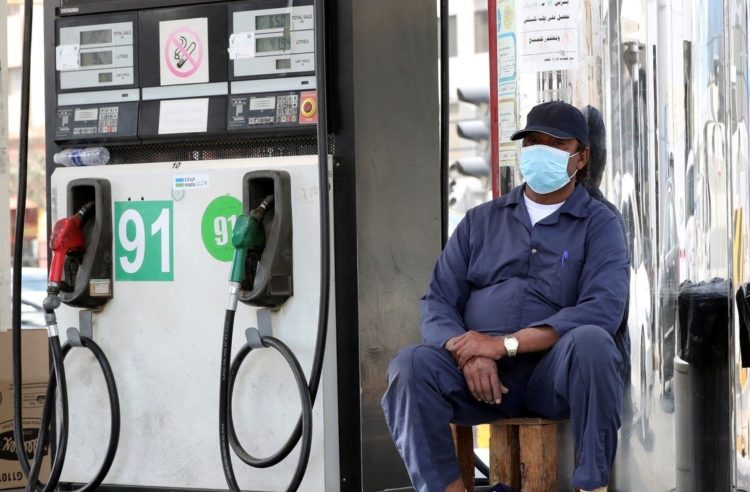To say this pandemic poses a threat of serious losses to the Petroleum Industry worldwide might not adequately capture the sheer numeric magnitude of the shortfall for this particular industry.
And that’s about all I can speculate with this because the signs are daunting … this time through Peter Yamborigya, Director of Acquisitions & Partnerships at Maxwell Investments Group. He is also the Country Manager for the Africa Centre for Energy Research & Economic Intelligence (ACEREI) and an Adjunct Lecturer at the British College for Technology and Commerce (BCTC).
Peter and I have been talking about petroleum and power projects, energy policy implementations, development economics and its applications in relation to the effects of COVID 19
Enjoy the read!
♕ —- ♕ —- ♕ —- ♕ —- ♕ —- ♕ —- ♕ —- ♕ —- ♕

The global oil and gas industry is among the hardest hit amidst the growing uneasiness the world currently finds itself due to coronavirus.
Many participants in the oil and gas industry have seen sales and revenue projections crash, due to the upset of demand associated with COVID-19 and the ongoing geopolitical war in prices between Russia and Saudi Arabia. As to what path lies ahead for the industry, it would be up to the individual organizations’ resilience and government support systems within their respective jurisdictions.
OPERATIONAL DISRUPTION AND SUPPLY CHAIN RISK
Continued operations will likely become increasingly difficult due to workforce shortages as employees are infected by the coronavirus and the practical difficulties in many cases of social distancing and movement restrictions. Companies therefore are preparing to or already are operating with skeleton crews to continue operations. This is currently disrupting planned maintenance, inspection, repair and replacement of equipment and drilling activities.
For this period, companies would also have to look at third-party contractors who work on-site and structure an alignment of operational activities with COVID-19 policies. There is the prospect of sealing off oil wells as a result of the reduced number of personnel on drilling rigs falling below the level required by health and safety regulations.
Supply chain disruptions go beyond the initial supplier in the supply chain as disruption among second-tier and third-tier suppliers could ultimately affect both service companies and operators.
UNEMPLOYMENT DUE TO ACTIVATION OF FORCE MAJEURE CLAUSES
As the coronavirus situation deteriorates, many industry participants are reaching for the force majeure (FM) provisions in their key contracts to excuse failure to perform or to exit. Whilst these are typically designed to cover a situation where contractual performance is impossible, difficult or onerous to perform as a result of exceptional events outside either party’s control (for example a global pandemic), relying on an FM clause is very heavily dependent on the factual circumstances and the drafting of the specific clause. The choice of the contract’s governing law will also influence the availability of FM and similar reliefs including possible change of law relief.
Depending on the situation, there are also likely to be several steps that a party seeking to claim FM should take in order to maximize its chances of success, for example: identify the specific measures (as opposed to coronavirus in general) and evidence the actual impact these measures have had on it; mitigate the impact of such measures; and submit the contractually required notices on time. The end game however is that some workers are going to made redundant or dismissed for no activity.
As instability and uncertainty increase, so will the number and types of disputes due to businesses becoming unable (or unwilling) to perform existing contractual obligations.
COUNTERPARTY CREDIT MEASURE OUTLOOK
As the pandemic season continues, the industry must brace itself for a renewed focus on credit risk associated with counterparties as financial stress flows through the sector. This suggests that an extension of payment terms and innovative financing structures, which leverage on stronger balance sheets and help sustain weak counterparties while mitigating creditors’ risk, may again become prominent.
GOVERNMENT INTERVENTIONS AND SUPPORT MEASURES
For the fact that some sections of society cannot function without the energy from oil and gas it has become necessary for governments to intervene in order to ensure continued supply. As energy supply is generally considered a matter of national interest, measures are increasingly being implemented at a national level to provide some relief to the local oil and gas industry from the adverse impact of COVID-19.
BORROWING BASE FINANCING FACILITIES
The fall in the oil price will put many upstream producers into default. Producers may be sheltered from the risk of payment default for as long as any commodity price hedges remain in place.
This implies lenders will have to decide whether to either: (1) waive the default (typically as part of a debt restructuring on the basis of “amend and extend”); or (2) enforce their security rights.
In light of the 2014/15 price slump, given the practical difficulties and risks associated with enforcement, it is expected that lenders would opt for the former in most circumstances. Banks worldwide have strengthened their balance sheets significantly since the 2008 financial crisis and our Banking Sector here in Ghana recently recapitalized. All these give the Banks more scope and ability to support borrowers through this period. Conversely, those banks looking to reduce their exposure to the resources sector, may look hard for an exit from distressed loans.
DISTRESSED MERGERS & ACQUISITIONS
Consolidation through the acquisition of distressed assets is a textbook response to slumps in the industry; and some did it successfully following the 2014/15 price fall. Given the speed, scale and volatility of the crisis, it is premature to gauge the buy side interest. In many countries, governments have tightened their oversight of foreign investment rules to protect vulnerable domestic companies laid low by the crisis. Foreign acquirers will need to navigate these new rules. Likewise, acquirers should consider whether any government support received by the target comes with conditions that impede any planned post-merger restructuring and integration.
♕ —- ♕ —- ♕ —- ♕ —- ♕ —- ♕ —- ♕ —- ♕ —- ♕
Hit me up on social media and let’s keep the conversation going! I read all the feedback you send me on LinkedIn, Twitter, Instagram and Facebook.
Go to bit.ly/maxwrites to read all my previous articles.
Also, feel free to send me your articles on relevant topics for publication on the Macroeconomic Bulletin. I’d give you full credit, an intro, and an outro. Kindly make it about 1000 words.
Have a lovely week!
♕ —- ♕ —- ♕ —- ♕ —- ♕ —- ♕ —- ♕ —- ♕ —- ♕

Maxwell Ampong is the CEO of Maxwell Investments Group, a Trading and Business Solutions provider. He is also the Business Advisor for the General Agricultural Workers’ Union of TUC (Gh). He writes about trending and relevant economic topics, and general perspective pieces.

LinkedIn:/in/thisisthemax Instagram:@thisisthemax Twitter:@thisisthemax Facebook:@thisisthemax Website: www.maxwellinvestmentsgroup.com Email: maxwell@maxwellinvestmentsgroup.com Mobile: 0249993319













